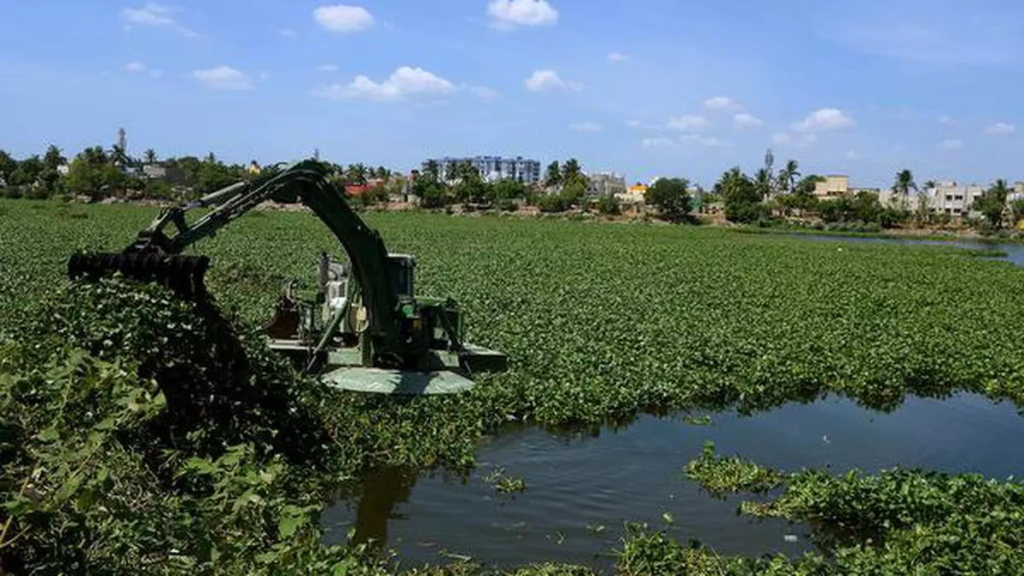
Context:
Icrisat’s solar-powered water hyacinth harvester offers a cost-effective solution for rural communities facing weed infestations solar-powered water hyacinth harvester offers a cost-effective solution for rural communities facing weed infestations.
Highlights:
- Such solutions were developed by Icrisat for rural farming communities using solar water hyacinth harvesting machines.
- These machines cost less than ₹2 lakh, so they are effective and cost-efficient compared to expensive machinery.
- This aquaric weed is growing rapidly and destroys rural environments, so it’s a very big problem.
The International Crops Research Institute for the Semi-Arid Tropics (ICRISAT)
The International Crops Research Institute for the Semi-Arid Tropics (ICRISAT) is an international organization that is working to improve dryland farming and food systems to combat hunger, malnutrition, poverty, and environmental degradation:.
- Mission
- ICRISAT’s mission is to eradicate poverty, hunger, malnutrition, and degradation of the environment in the dryland tropics.
- Founded:
- March 28, 1972, through a Memorandum of Agreement between the Government of India and CGIAR.
- Vision
- ICRISAT envisions a prosperous, food-secure, and resilient dryland which will change itself in an ever-changing world.
- Focus
- ICRISAT covers sub-Saharan Africa and Asia where 2.1 billion people inhabit the drylands.
- Headquarters
- ICRISAT is based at Patancheru in India. It operates a sprawling 1,390-hectare campus inside Hyderabad, Telangana, with state-of-the-art research facilities.
- Partnerships
- ICRISAT works with global partners such as leading institutions, the Indian Council of Agricultural Research, Indian Institute of Millets Research, and State Agriculture Universities.
- Digital tools
- ICRISAT has also designed digital tools like the Plantix app, which gives the diagnosis of pests, diseases, and nutritional deficiencies in 35 crops.
- Office for Intellectual Property
- ICRISAT Intellectual Property Office is there to assist innovators with their intellectual property guidance, protection, and management.
Aquatic Weeds
Aquatic weeds are usually plants that grow in or around water bodies and create disturbance in the ecology. Water Hyacinth is the most famous aquatic weed and is on the leading role of all due to its fast growth.
Impacts of Aquatic Weeds:
- Ability to block sunlight and reduce oxygen levels.
- Such weeds reduce biodiversity as they outcompete native plants and disrupt wildlife habitats.
- They interfere with transport of water, irrigation, fishing, and recreational activities, which in turn raise the cost of water treatment.
- Control and management methods:
- include manual removal, mechanical harvesting, biological control, and chemical control.
- Water Hyacinth, Salvinia, Floating water Fern, and Parrot’s Feather are examples of aquatic weeds.
















